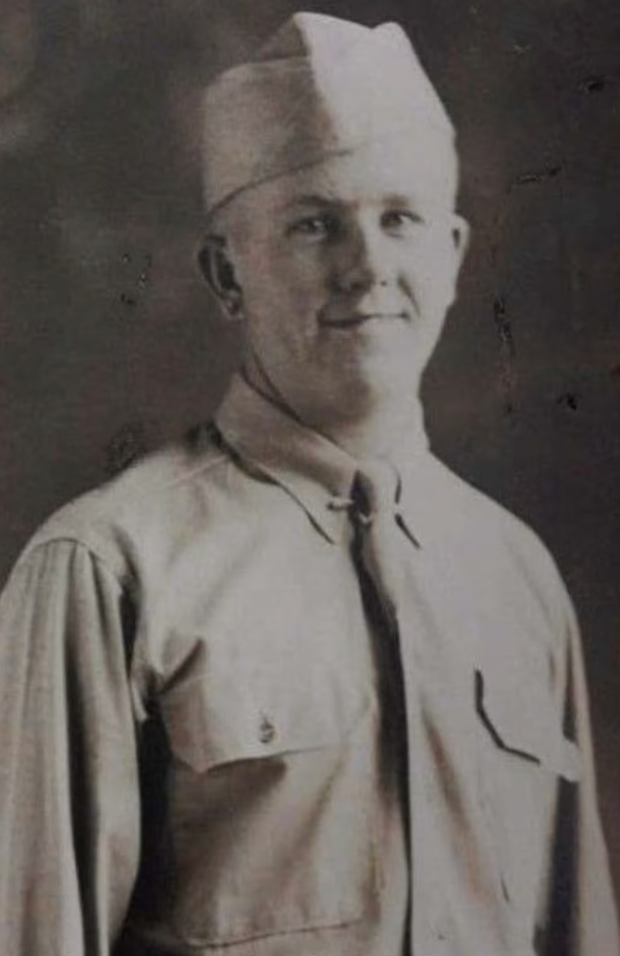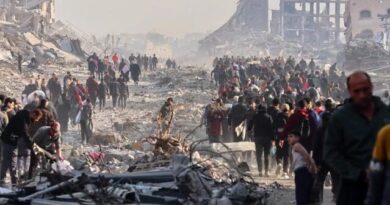Remains of teen U.S. soldiers killed in World War II identified 80 years later
The remains of two American soldiers who were killed during World War II have been identified, U.S. Army officials said Wednesday.
U.S. Army Sgt. Jack Zarifian and U.S. Army Private Rodger D. Andrews were both 19 years old when they died in combat in Europe, the Defense POW/MIA Accounting Agency said.
Zarifian, from Bridgeport, Connecticut, was killed while fighting with Company G, 2nd Battalion, 253rd Infantry Regiment, 63rd Infantry Division near Buchhof, Germany. Fierce fighting took place, the DPAA said in a news release, and Zarifian was reported killed in action after he was struck by a rocket on April 6, 1945. His body could not be recovered due to the fighting, and his remains were not accounted for during or after the war.
After the war ended, the American Graves Registration Command worked to bring home the remains of fallen soldiers, and several recovery teams went to Buchhof as part of those efforts. Several U.S. soldiers who had been buried in the town’s cemetery had been exhumed shortly after the war, but Zarifian’s remains weren’t among them. His name was recorded on the Walls of the Missing at the Lorraine American Cemetery in France.
Defense POW/MIA Accounting Agency
It wasn’t until 2023 that Zarifian’s remains were found. DPAA officials received a phone call on October 18, from German officers who said they had found possible American remains near Buchhof while technicians cleared a construction site. The remains were excavated, and officials also found “items utilized by U.S. personnel during World War II, and various personal items believed to belong to Zarifian.” All the items were transferred into DPAA custody, and analyzed by the agency.
Andrews, from Gravette, Arkansas, was assigned to Company C, 37th Engineer Combat Battalion, during the war. He served during Operation Overlord in Normandy, France, helping clear German defenses, obstacles and mines from Omaha Beach and establish exit roads for invading ground troops on June 6, 1944. At some point during the invasion, he was killed, but it was unclear how because of the ferocity of the fighting, according to the DPAA.
His remains were not identified in the aftermath of the battle, but in 1946, the American Graves Registration Command began searching for missing personnel in the area. A set of remains, labelled X-48 St. Laurent, were found with a belt that had Andrews’ initials on it. However, officials thought the belt could have been traded between soldiers, and other remains shared physical similarity, so an identification was not made at the time and the remains were buried at the Normandy American Cemetery as those of an unknown soldier on Dec. 11, 1948. His name was recorded on the Walls of the Missing at the cemetery.
Defense POW/MIA Accounting Agency
In December 2014, Andrews’ family asked the DPAA to devote more time to his case. Historians reassessed the circumstances of his death and reexamined the belt and other clothing items he had been wearing. Once they had enough evidence to believe the X-48 remains could be those of Andrews, they exhumed them and had them transferred to the DPAA laboratory in 2019.
Both Andrews and Zarifian’s remains were analyzed with a number of methods, including anthropological and dental analysis and mitochondrial DNA analysis. Circumstantial evidence was also studied in both cases.
Zarifian’s remains were accounted for on May 10, the DPAA said. Andrews’ remains were accounted for on June 5. Rosettes have been placed besides both names on the Walls of the Missing where they are recorded.
Both will be buried at a future date. The DPAA said Zarifian will be buried in Providence, Rhode Island, but did not specify where Andrews would be interred.






